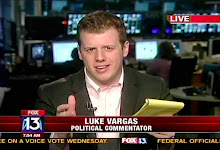
I spent the car-ride back from New Hampshire this morning trying to figure out how to write up this post. I started to absorb all of the things I had experienced in the past hour and thought about ways to distill it. I was tempted to elaborate on what it felt like to have goosebumps again at a campaign event (the last time that happened was a John Kerry rally in New Hampshire I attended only two days before the '04 election), or whether I should talk about the humbling feeling when you find yourself surrounded by hundreds of firefighters.

Just this Wednesday, two Boston firefighters--both veterans in the department-- were killed in an area fire. Warren Payne and Paul Cahill were remembered at the start of this morning's rally for Senator Chris Dodd in Manchester by a bagpipe rendition of "Amazing Grace" played by a firefighter's honor guard. A sea of firefighters wearing the IAFF's signature yellow t-shirts gathered silently to pay their respects This would be the first of many moments the crowd would gather in communion throughout the morning.

The IAFF's President, Harold Schaitberger, took to the platform and explained the union's rationale for endorsing Senator Dodd. Though Schaitberger's comments on the matter have been widely publicized--that Dodd was not picked to avoid confrontation with any of the top tier candidates--he again outlined that his organization looks beyond the polls and considers all candidates for their endorsement. Schaitberger reiterated that Chris Dodd is the closest ally of firefighters nationwide, and if he's only polling at 1% than they just have to work harder to put him in the lead.
I realized then that firefighters approach their job in a similar manner: thinking not which lives are worth saving easily and giving up after that, but instead committing themselves (and occasionally losing their lives) in a fight to do whatever they can to save anyone in danger.

It wasn't until Schaitberger's introduction of Chris Dodd, however, that I fully understood how important the backing of the IAFF will be for the Senator. In a cheer more often associated with a football game, Schaitberger rallied the crowd by asking if they would do whatever it takes to campaign for Dodd and not rest until the primary and beyond. In unison the firefighters responded with a resounding "hell yeah!"
After attending events for Hillary Clinton and Barack Obama in New Hampshire, I figured Chris Dodd would never preside over a large, electrified crowd. I was quickly proved wrong when Senator Dodd was welcomed onto the stage.

The Senator articulated what the IAFF's backing truly signifies by underscoring the amount of respect and heroism we associate with firefighters. Whether neighbors, friends, or little league baseball coaches, firefighters are perhaps the single most trusted individuals in any community. If I didn't have access to the news, was never phone banked by a candidate's staff, or never received piles of mail telling me who to vote for, I'm confident I would trust a firefighter to tell me who the best candidate was. It's that level of deference to the firefighter's profession that makes the IAFF endorsement so important for Dodd.

Though I consider myself well-versed on the policy positions of many presidential candidates, I know very little about what the candidates have done that affects firefighters and emergency workers.
In most cases, whenever a campaigning politician mentions or his or her legislative accomplishments or has their career summarized by someone else, audiences don't often get too excited. Even candidates addressing such groups as the NEA receive applause more out of general support for the candidate than for the details of the mentioned bill or proposal. When Chris Dodd's resume of protecting firefighters in his 26 years in the Senate was explained by Harold Schaitberger, however, the audience notably began nodding in anticipation and approval before the words "SAFER Act" (provided departments with the ability to hire more firefighters and thus prevent firefighters from entering dangerous situations with too little backup) and "FIRE Act" (a measure that has provided more than $3 billion for training and equipment upgrades across the country) were mentioned.
So little is communicated from the television screen; the emotions of a crowd are only palpable when you're there in person. Being surrounded by the mass of firefighters drove home the level of sincere agreement and respect for Dodd's bills that the audience felt.

I walked away from the rally this morning in awe. After seeing Chris Dodd on three prior occasions, I agreed with those who were critical of his often-bureaucratic manner of speech, but Dodd is markedly new man now: he's all fired up (pun intended). With a fresh haircut, a raspy voice (no doubt from two consecutive days of IAFF rallies), and a throng of cheering supporters, I can now visualize a different Chris Dodd. Where I previously saw little more than a Washington politician--a kind one, but far from charismatic--I now see Dodd as a candidate capable of both succeeding in his legislative role, but also someone with the spark to lead and inspire the people who hear him.
When I first met the Senator I asked him about youth involvement in politics and what needed to happen to empower younger generations. His answer touched upon a lot of points I can no longer remember, but his last sentence presented a personal challenge to me that no other candidate I've met has asked: "Support me in the primary--we need young people like you."

As Dodd accepted President John F Kennedy's call to national service by joining the Peace Corps, I'm proud to say I have taken up Chris Dodd's challenge to support him in the primary. I'll still cover every candidate and event that lands on the New Hampshire campaign schedule, but like the IAFF, I endorse Senator Chris Dodd.
(all photos: © 2007 by Luke N. Vargas. All Rights Reserved.)



































